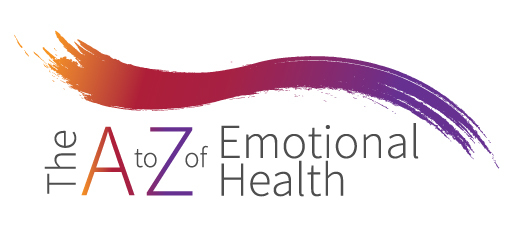
If you, or someone you know, has lost someone that you love, there are some really important things that you should know about loss at Christmas time.
When you install a new program on a computer, while this new program is making alterations to your system then everything else slows down. In fact, some routine programs may even stop working altogether. The process of bereavement is just like a running a new program. Once it's started it needs to run its course... and it doesn't stop for Christmas. In fact, celebration times like Christmas, birthdays and anniversaries will create the equivalent of unexpected pop-ups.
Pretty much most of what we feel during the course of bereavement is completely natural, and yet sometimes we are so bowled over by the intensity and complexity of our emotions that we can feel as though there is something wrong with us.
Our emotions can change like the sea. Gentle waves of sadness and reminders can suddenly turn into the storm of the century with the equivalent of an emotional tsunami. We can feel overwhelmed and carried by the tide of emotion, buffeted about by the memories that surround us.
Being with loved ones can actually have a double edge to it. Being around people who are joyous and happy can be a stark reminder of our own loss and doing something lovely with friends and family can actually generate very powerful feelings of emptiness and sadness even though the intention may have been exactly the opposite.
For most people family relationships are the most challenging in our lives, so it's not surprising that if we are in a place of profound loss and vulnerability then spending time with family members at Christmas may trigger some complex emotional responses.
And yet it is often the unexpected little things that take us by surprise, like going shopping and noticing someone's favorite biscuits that they always used to buy at Christmas, or receiving a Christmas card from someone who doesn't know yet.
Sometimes being with friends and family can feel like a pressure. Even though we desperately don't want to be alone, we may feel that we have to put a brave face on things when we are with others and this can be a real trial.
We may also struggle to be fully present, however hard we try. Remember that whatever stage you are at in your grieving process, you have a major program running in the background, and this is going to slow everything down. You may find that you forget things. You may find you lack concentration. All of these things are completely natural. However organized you used to be at Christmas, you may not be this year, and that's okay.
Sometimes remembering the good times that we've had with someone can be almost too hard to bear in the face of their absence. The loss can simply feel too great. I think it's important to remember that the intensity of our feelings will always be relative to the quality of the relationship that we had with someone, so when you experience intense pain and sadness at the loss of someone close it is actually a testimony to the quality of that relationship, and a testimony to the love and regard that you had for them.
When we lose someone we will experience not only the loss of that person but also a whole bunch of what I would call secondary losses as well. A good way to picture this is to imagine a spider diagram. In the middle there is the person that we've lost, and all around the outside of the diagram are loads of other things that we've also lost alongside this person. Not only the things that we used to do with them, and the things that we associate with them, but also the loss of future possibilities. Christmas is a big reminder of all of these, both past and present.
Christmas can also be a time of immense guilt in bereavement. We feel guilty with our family and friends for not being happy, but then guilty to the person we've lost if we do have a good time. Sometimes we can feel guilty about ever feeling OK ever again, as though we oughtn't to be doing so and as though being OK even for a moment would be disrespectful to the person that we've lost. Or we feel guilty if we start to relax and momentarily forget them. We can be afraid that if we stop thinking about them for even just one second we will somehow forget them forever.
All of these thoughts and feelings are completely natural and yet because many of them are intense and contradictory and go against the way that believe that we should be feeling we can get into a complete pickle... which is the last thing that we need at a time of natural vulnerability.
If you have recently lost someone or this is your first Christmas without them, then I would suggest that you do the following:
- Take time out whenever you need it and ask others to respect this.
Jenny Florence enjoys conversation with her readers.
Log on to her website, a-z-of-emotionalhealth.com to listen to Audio Talks about all aspects of Emotional Health. Her new audio book, Emotional Health, the Voice of Our Soul, is now available on Amazon. It is also available in Kindle.
